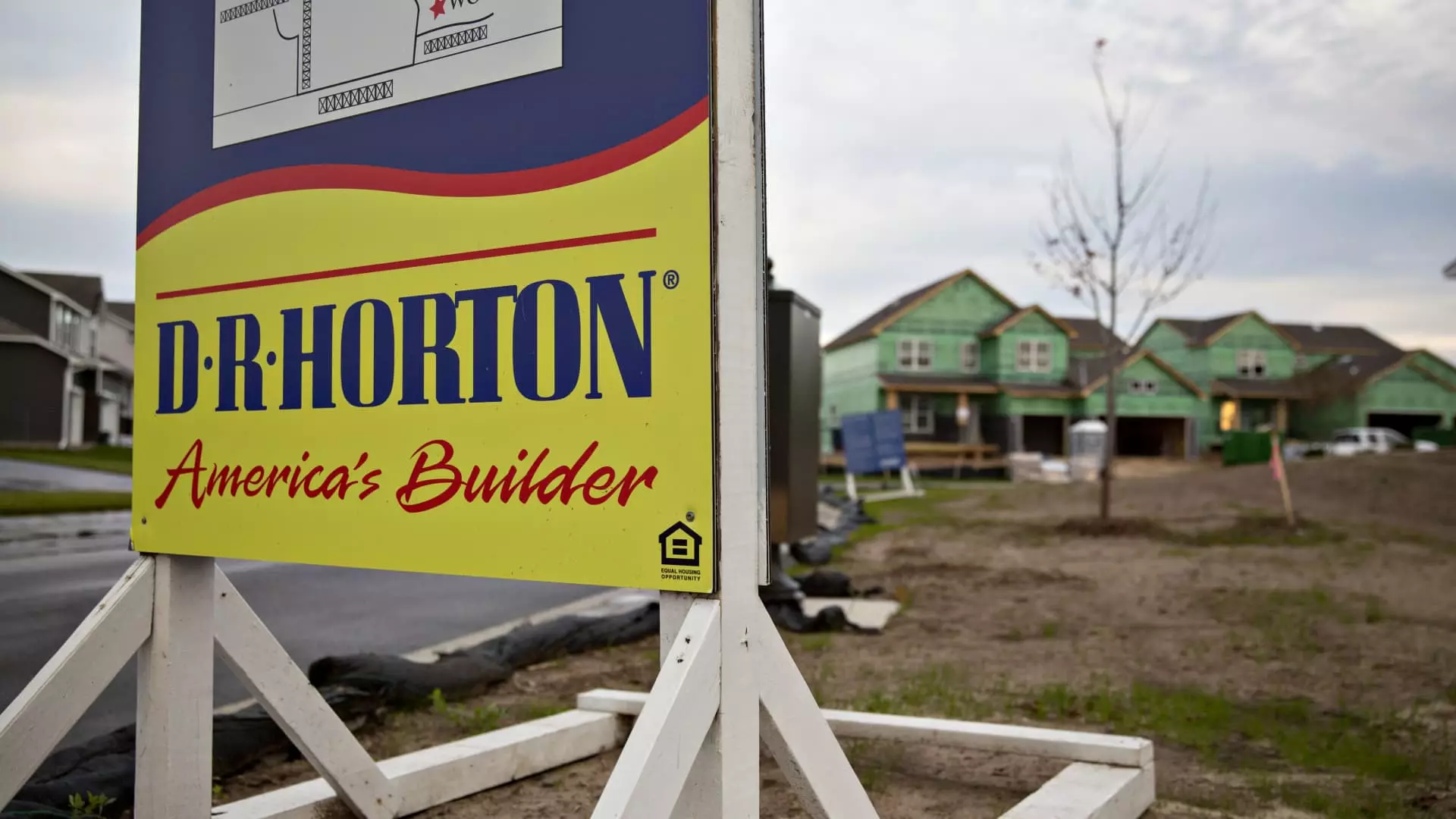The latest earnings report from D.R. Horton, one of the largest homebuilders in the United States, sheds light on a troubling trend in the housing market. Despite a slight dip in mortgage rates from their peak earlier this year, the ongoing volatility in interest rates has cast a shadow over consumer confidence and the broader economy. The Arlington, Texas-based company’s quarterly results fell short of Wall Street expectations, signaling potential challenges ahead not only for the company but also for future homebuyers and the housing sector as a whole.
D.R. Horton’s earnings per share stood at $3.92, which was a stark contrast to the $4.17 predicted by analysts. In addition to missing the earnings estimate, the company’s projected revenue for the fiscal year ending September 2025, ranging from $36 billion to $37.5 billion, lagged behind the anticipated $38.91 billion. Wall Street responded negatively, leading to an 11% drop in shares shortly after the release of these results. Such a financial performance not only affects D.R. Horton but also triggers declines in shares of its competitors, with other leading homebuilders experiencing notable losses.
At present, the 30-year fixed mortgage rate hovers around 7%. While this marks a decrease from the 8% recorded last October, it remains the highest rate since early July. The ongoing fluctuations in mortgage rates are intricately linked to the yield on the 10-year Treasury note, which has surged recently due to strong economic indicators and uncertainty surrounding the Federal Reserve’s monetary policy. When bond yields rise, mortgage rates typically follow suit, presenting barriers for potential homebuyers who might be on the fence about making a purchase.
The commentary from D.R. Horton’s CEO, David Auld, indicates that many homebuyers are opting to wait, anticipating more favorable interest rates in 2025. This sentiment illustrates a broader issue within the market: the hesitation to commit to home purchases due to unpredictability in borrowing costs. The idea that consumers are willing to delay their decisions until they believe they can secure better financing terms could further dampen demand in an already challenging environment.
The implications of D.R. Horton’s performance extend beyond the company itself, affecting various sectors. The downturn in the homebuilding industry will likely have a ripple effect, influencing related markets such as home improvement retail, with companies like Home Depot and Lowe’s also experiencing declines in share prices. If interest rates remain high or continue to fluctuate, the housing market may face prolonged stagnation, with consumers hesitating to enter a market fraught with uncertainty.
The interconnectedness of interest rates, consumer sentiment, and company performance paints a complex picture of the current housing market. As D.R. Horton navigates these challenges, the future trajectory of the industry will depend heavily on the stabilization of mortgage rates and how quickly confidence can be restored among potential buyers.

